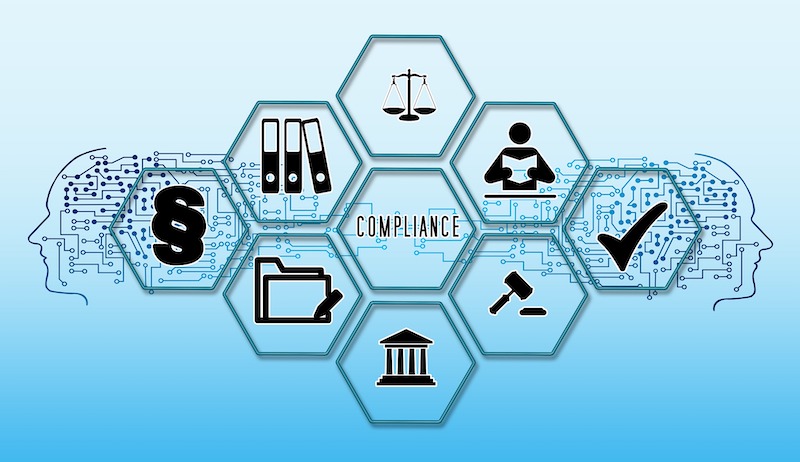
When customers use their credit cards to make online purchases, their personal and financial information is transmitted over the internet between systems. This information includes the cardholder's name, card number, expiration date, and security code. If this information is not properly protected, it can be stolen by hackers and used for fraudulent activities, such as making unauthorized purchases or opening new accounts in the victim's name.
According to a report by the Association of Certified Fraud Examiners (ACFE), organizations worldwide lose an estimated 5% of their annual revenues to fraud. In the United States, the Federal Trade Commission (FTC) reported that consumers reported losing over $1.9 billion to fraud in 2019, with the median individual loss being $320. The most common types of fraud reported to the FTC included imposter scams, identity theft, and debt collection scams.
What is PCI DSS?
PCI DSS stands for Payment Card Industry Data Security Standards, which is a set of security standards established by major credit card companies, including Visa, Mastercard, American Express, and Discover. The standards were created to protect cardholder data and ensure the security of payment card transactions. PCI compliance refers to the adherence to the Payment Card Industry Data Security Standards (PCI DSS)
The PCI DSS consists of a set of requirements that organizations that accept, process, store, or transmit cardholder data must follow. The requirements are organized into six categories, which include:
- Build and Maintain a Secure Network
- Protect Cardholder Data
- Maintain a Vulnerability Management Program
- Implement Strong Access Control Measures
- Regularly Monitor and Test Networks
- Maintain an Information Security Policy
The requirements include specific measures for securing networks, encrypting data, implementing access controls, monitoring and testing security systems, and maintaining strict security policies and procedures.
Compliance with the PCI DSS is important to protect customers from fraud and identity theft, and to avoid costly fines and legal liabilities for organizations that fail to protect sensitive data. Organizations that process payment card transactions must undergo regular assessments to ensure compliance with the PCI DSS.
What other security standards are there?
In addition to the PCI DSS, there are several other standards that merchants must comply with to protect customer data depending on the industry they do business. Some of the most important ones include:
- General Data Protection Regulation (GDPR): This is a regulation enacted by the European Union (EU) that aims to protect the privacy and personal data of EU citizens. It applies to any organization that processes the personal data of EU citizens, regardless of where the organization is located.
- Health Insurance Portability and Accountability Act (HIPAA): This is a U.S. law that sets standards for the protection of patients' health information. It applies to healthcare providers, health plans, and other organizations that handle protected health information.
- Federal Information Security Modernization Act (FISMA): This is a U.S. law that sets standards for the security of federal government information and information systems.
- International Organization for Standardization (ISO 27001): This is a globally recognized standard for information security management systems. It provides a framework for organizations to manage and protect their information assets.
Compliance with these standards is important to protect customer data and avoid costly fines and legal liabilities. Organizations must ensure that they understand and comply with all relevant standards that apply to their industry and operations.
How do you obtain security certifications?
The process of obtaining certification to standards such as PCI DSS, GDPR, HIPAA, FISMA, and ISO 27001 typically involves several steps:
- Identify the relevant standard: The first step is to identify the standard that applies to your organization and understand its requirements.
- Conduct a gap analysis: The next step is to conduct a gap analysis to determine the areas where your organization needs to improve to comply with the standard.
- Implement controls: Once you have identified the areas for improvement, you must implement controls to address any gaps and meet the standard's requirements.
- Conduct an assessment: After implementing controls, you must conduct an assessment to determine if your organization is compliant with the standard.
- Obtain certification: If your organization is found to be compliant with the standard, you can obtain certification from a third-party auditor. The certification demonstrates that your organization has met the standard's requirements and is committed to protecting customer data.
The process of obtaining certification can be complex and time-consuming and may require the assistance of external consultants and auditors. It is important to ensure that your organization has the resources and expertise necessary to complete the certification process successfully.
Conclusion
With more and more people buying products online, more fraudsters are doing everything possible to steal personal information for their monetary gains. PCI DSS and other standards are implemented to protect consumer data, and also protect online transactions from being leaked due to insecure systems.
Compliance with the PCI DSS is mandatory for any organization that accepts payment cards, and failure to comply can result in costly fines and legal liabilities. Organizations must undergo regular assessments to ensure compliance with the PCI DSS.
In addition to the PCI DSS, there are several other standards that organizations must comply with to protect customer data, such as GDPR, HIPAA, FISMA, and ISO 27001. Compliance with these standards is important to protect customer data and avoid legal liabilities.
Share this post
Leave a comment
All comments are moderated. Spammy and bot submitted comments are deleted. Please submit the comments that are helpful to others, and we'll approve your comments. A comment that includes outbound link will only be approved if the content is relevant to the topic, and has some value to our readers.

Comments (0)
No comment